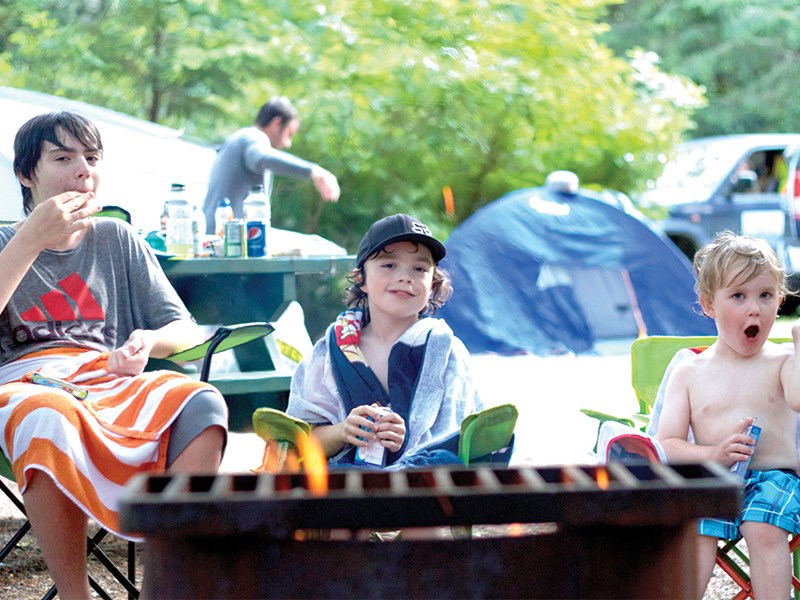Funding of close to $58 million for BC provincial parks will bring about the return of a full-time park ranger to Powell River, triple the number of campsites in Desolation Sound and improve facilities at Inland Lake.
Last November, BC premier Christy Clark announced $22.9 million in funding as part of BC Parks’ Future Strategy and promised to add 1,900 more campsites throughout provincial parks and recreation sites.
Last month, the premier announced $25 million more over the next three years to hire 28 additional park rangers and provide operational services, and $10 million for a BC Parks foundation to generate revenue.
The province’s investment in BC Parks will also mean a full-time park ranger will return to the Sunshine Coast. According to a Ministry of Environment spokesperson, the province is hiring 28 more park rangers, with one for the Sunshine Coast, likely based out of Powell River. For the past nine years, Powell River has not had a park ranger.
The new Desolation Sound campsites are included in the first phase of the parks plan and will be ready for visitors this summer, according to the ministry.
Hikers and sea kayakers exploring Desolation Sound Marine Provincial Park this summer will have more options for camping with the province adding 34 more sites in that location. Camping inside park boundaries is currently restricted to 11 designated sites where elevated platforms are provided to reduce impact on sensitive ecological and cultural park values.
Desolation Sound Marine Provincial Park is within the traditional territories of Tla’amin Nation and Homalco and Klahoose first nations. It includes several burial sites and other areas of cultural significance.
Tla’amin’s former traditional territory coastal stewardship manager Erik Blaney said he instigated Tla’amin’s Guardian Watchmen program as a response to the region losing its park ranger in 2008.
“We were fired up and monitoring a lot of the sites,” said Blaney. “We were basically doing BC Parks’ job for them in their absence.”
Over the years, Tla’amin has discovered several instances of burial sites being disturbed, said Blaney. Despite that, he said when funding for the guardian program ran out a few years ago, Tla’amin again had to rely more on provincial conservation officers to provide site monitoring.
Blaney added that cutbacks in conservation officer service resources have presented further challenges in protecting the first nation’s archaeological sites. Bringing a park ranger back will help improve the situation, he said.
Meanwhile, work is also underway at Inland Lake Provincial Park, where BC Parks crews are reshaping the current campground, installing new picnic tables, creating new picnic areas and enlarging the day-use parking area, according to the ministry.
The first phase of park facility upgrades was expected to be complete on Friday, March 31. The next stage of the project will be to assess the elevated walkway on the 13-kilometre, wheelchair-accessible trail that runs around the edge of the lake.
While the province is expanding provincial parks to accommodate more visitors, City of Powell River is trying to keep campers away from an old campsite east of the city.
City director of infrastructure Tor Birtig said his crews recently installed boulders to block vehicle access to sensitive areas near Haslam Lake, where the city’s water intake is located.
“We keep it open for people to walk there,” said Birtig, “but we definitely discourage them from staying overnight.”



